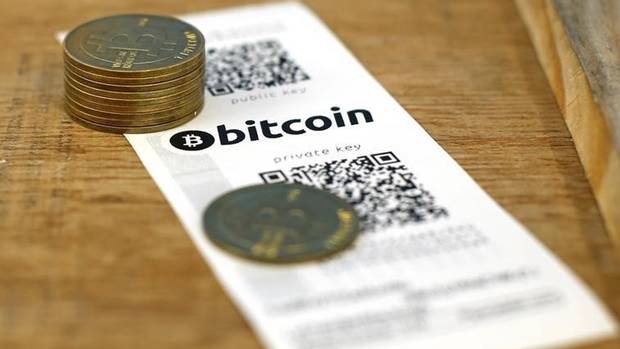In a recent post for The Globe and Mail, in which I outlined the five essential payment strategy recommendations for small merchants in 2015, Bitcoin was deliberately omitted in the list.
Nonetheless, its absence raised a lot of questions: Why would one of the most innovative and promising new payment solutions not be a major consideration for small merchants?
As payment technologies advance, small businesses can benefit greatly from adopting quicker and cheaper ways to process transactions. And Bitcoin, which peer-to-peer technology to operate with no central authority or banks, has been hailed by some as a promising way for retailers to grow their business and attract new customers.
Wrapped in the glittering allure of bleeding-edge innovation, it’s easy to see why Bitcoin may be perceived as a tempting proposition for merchants, especially those eager to attract young, tech-savvy customers. Its low fees, international accessibility and cash-like properties add up to financial benefits that are tough to ignore. But every benefit is shadowed by risk that you need to be aware of if you’re considering adopting this emerging cryptocurrency for your business. Ultimately,you’ll need to determine your comfort level with the risks that come alongside the rewards.
If you’re unsure whether Bitcoin is a good bet for your business, here are five considerations you’ll want to think about.
Bitcoin costs less to process than other digital payment methods
Upside: Bitcoin transactions are cheaper than credit card transactions. While credit card fees average about 3 per cent, Bitcoin transactions cost merchants significantly less at about 1 per cent, which means merchants keep a lot more money in their pocket. And what small business owner doesn’t want that?
Downside: Bitcoin isn’t fee-free, however, and as transaction volumes grow, so does the potential for fee creep. Currently, in order to convert Bitcoin payments, merchants must pay a service provider like Coinbase or BitPay to exchange their Bitcoins into dollars. Expect to pay per transaction or per month.
The likes of Microsoft, Dell, Expedia and Overstock.com now accept Bitcoin
Upside: What started as a fringe currency with a handful of passionate proponents has become an advanced marketing strategy for hundreds of small businesses and a growing number of Fortune 500 companies. Bitcoin’s got cachet in many desirable target markets, and its seamless international accessibility makes it an easy decision for businesses looking at global expansion.
Downside: According to a recent survey, 65 per cent of Americans are not at all familiar with Bitcoin. That’s a significant portion of the population that hasn’t even heard of the currency, let alone used it. Bitcoin is still in its early growth phase, and has a long way to go before it reaches anything close to mainstream usage.
Bitcoin is fast cash for your business
Upside: Unlike credit card payments, which can be held in escrow for up to a week, Bitcoin is money in your pocket just 10 minutes after the transaction is complete. Plus, there are no chargebacks or transaction reversals with Bitcoin, unlike with most other forms of payment, so you don’t have to worry about returns or payment disputes.
Downside: Bitcoin’s widely fluctuating currency value means money you made yesterday could be worth considerably less today unless you converted it into dollars immediately, which comes at a fee.
Once free from centralized oversight, Bitcoin is slowly being regulated
Upside: Once a pure peer-to-peer currency free from government oversight, as Bitcoin usage grows, so too does the likelihood of mechanisms being put in place to regulate and safeguard the currency. In Canada, it’s already happening with crackdowns on money laundering and terrorist activity financing by way of the virtual currency. And the recent launch of the first licensed U.S. Bitcoin exchange means even more security and tighter regulation for the fledgeling currency.
Downside: For those with libertarian leanings, Bitcoin has been something of a payment panacea relatively free of government regulation. That may have been good for consumers, but isn’t necessarily in the best interest of small businesses.
Bitcoin may be the beginning of a whole new way to pay
Upside: The appetite for and interest in the digital cryptocurrency is evidenced by the thousands of articles, discussion threads and daily transactions in the currency. And for merchants, it opens up the marketplace to a whole host of new customer segments.
Downside: Despite its advancements, Bitcoin’s future remains uncertain. Along with security and regulatory issues, a constantly changing landscape of players and a lack of understanding among the majority of consumers, it’s still in its nascent stages and could yet fade into obscurity or remain in the domain of cryptocurrency enthusiasts.
If you’re willing to trade risk, volatility and an ever-changing payment landscape for the prospect of a global marketplace and lower costs, then Bitcoin may be right for you. But if you’re like most small merchants who simply can’t afford to take those kinds of risks, you may be better off waiting for the early adopters to iron out Bitcoin’s biggest bumps.
Click on the bitcoin logo below to buy, use or accept bitcoin. Unocoin is India’s most popular bitcoin wallet.
To read the bitcoin white paper, visit: https://bitcoin.org/bitcoin.pdf



